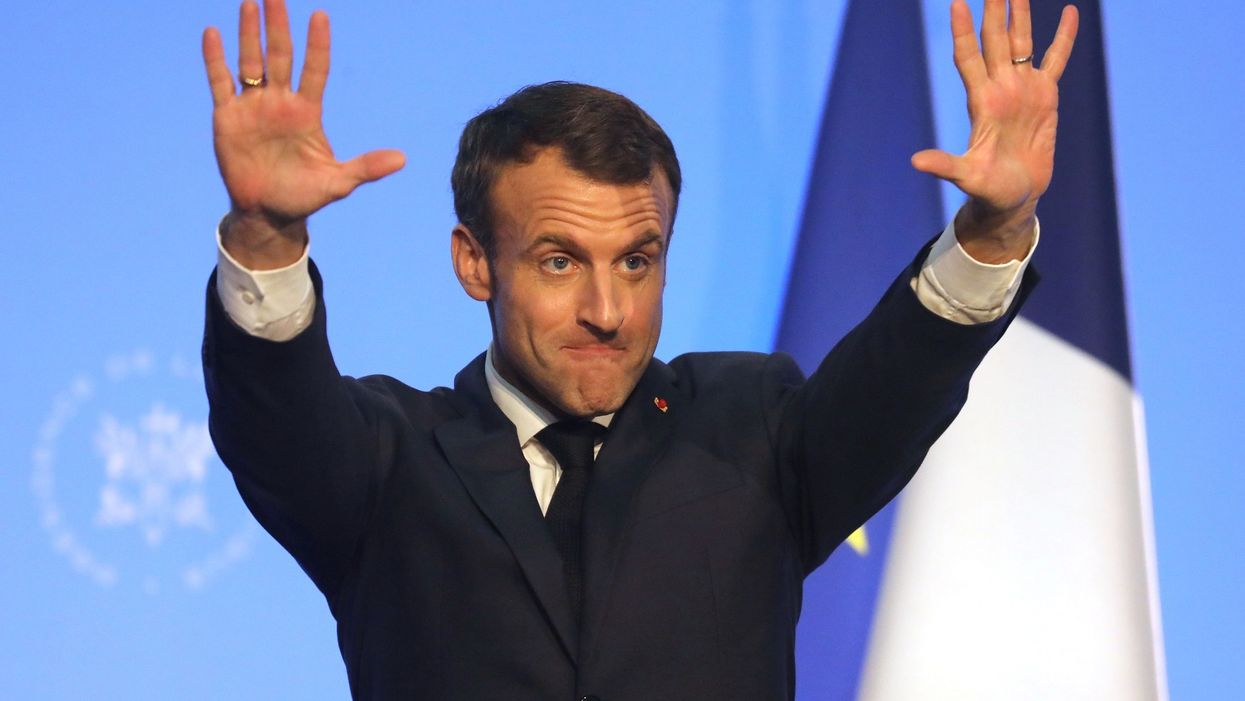
French President Emmanuel Macron has caved to protesters after weeks of demonstrations in his country, agreeing to delay a pending fuel tax increase. (LUDOVIC MARIN/AFP/Getty Images)

Riots have raged for weeks in opposition to the impending fees aimed at reducing carbon emissions
French President Emmanuel Macron has capitulated after weeks of protests in his country, and agreed to postpone a pending fuel tax that sparked violent demonstrations in the European nation. Macron had claimed that the fuel tax was necessary to combat climate change.
Macron originally announced that a 30-cent tax hike on fuel would go into effect on Jan. 1, which sparked weeks of protests. Since the heightened violence erupted on Saturday, four people have been killed in riots that resulted in another 100 injuries and over 400 arrests as leaders seek to tamp down the unrest.
On Tuesday, Prime Minister Édouard Philippe held a news conference announcing that the increased tax on fuel would be delayed by six months.
NPR reported that Philippe said on French television: "One would have to be deaf and blind not to see or hear that anger. I hear it...It is the anger of France who works hard and struggles to make ends meet."
"No tax is worth threatening the unity of the nation," Philippe continued, as reported by The Wall Street Journal.
Rioters have looted stores, set cars on fire, and vandalized both the Arc de Triomphe and the Tomb of the Unknown Soldier amid their outrage.
The fuel tax is part of President Macron's broader environmental initiative, which is designed to fight climate change, but its announcement served as a breaking point for French citizens — as voters' views of the young leader have soured over his 18 months in office. Critics have accused Macron of favoring the rich in his reform agenda, and his constituent favorability ratings toppled from hovering in the low 40s during the summer, to 28 percent as of last month.
Those rioting against the fuel tax proposal are known as the "Yellow Vests," comprised of mostly rural citizens feeling the pinch over a series of initiatives by Macron that include the loosening of labor laws.
Neon yellow safety vests donned by the demonstrators are symbolic in that they're required to be worn by all motorists in the country, but the fuel protests morphed into a broader anti-government message as the chaos has waged on.
"Originally, the yellow vest protesters were people from rural areas who have to drive long distances as part of their daily life," NPR's Jake Cigainero reported. "Protests appeared in pockets around France to denounce Macron's green tax and then quickly grew into a larger movement that includes members of the working and middle class who are expressing their frustration about slipping standards of living.
"They say their income are too high to qualify for social benefits but too low to make ends meet," Cigainero added. "The movement has no official leadership and was organized initially through social media groups."
Other protests against climate change-inspired measures have also sprung up in recent days in Belgium and Canada.